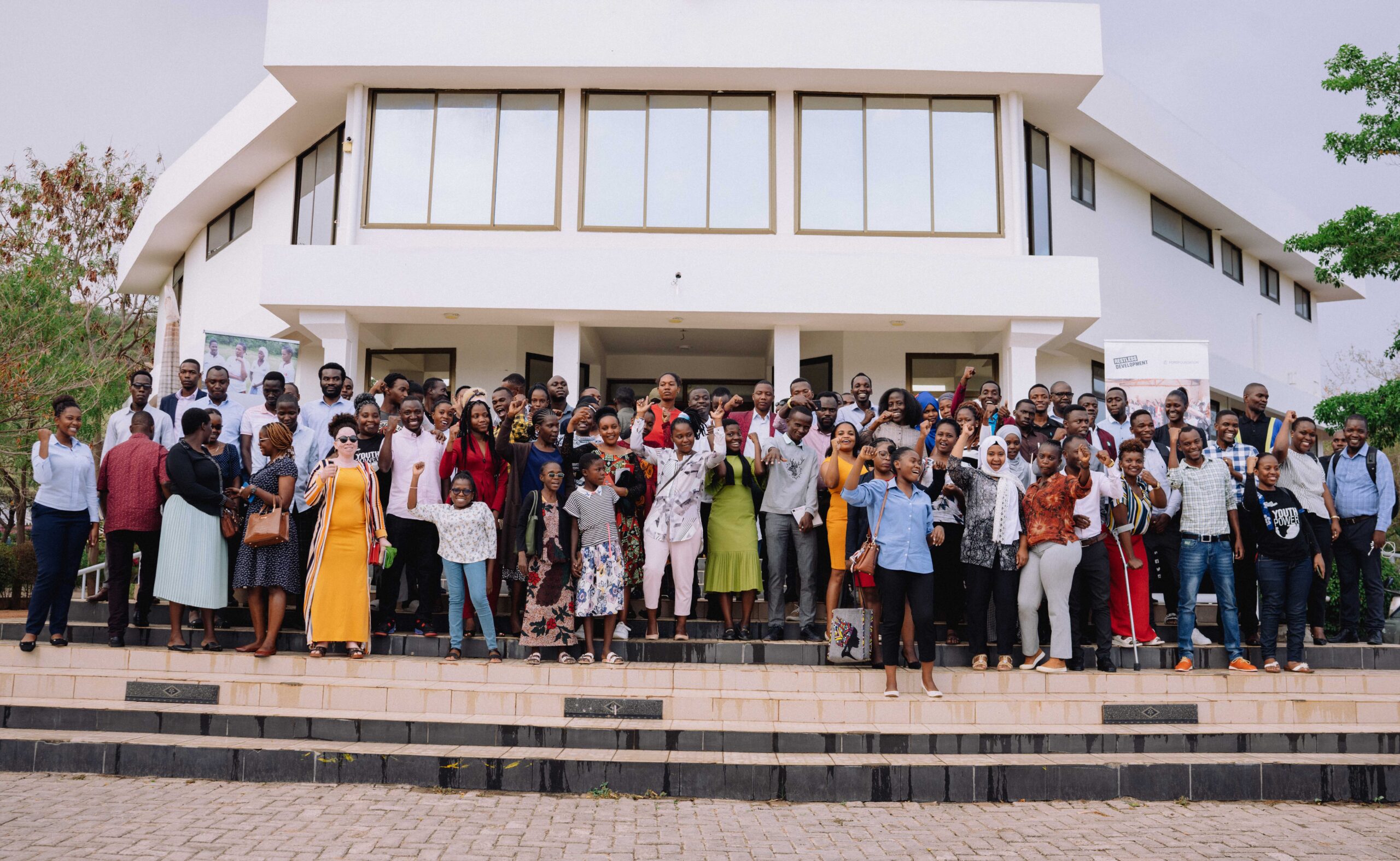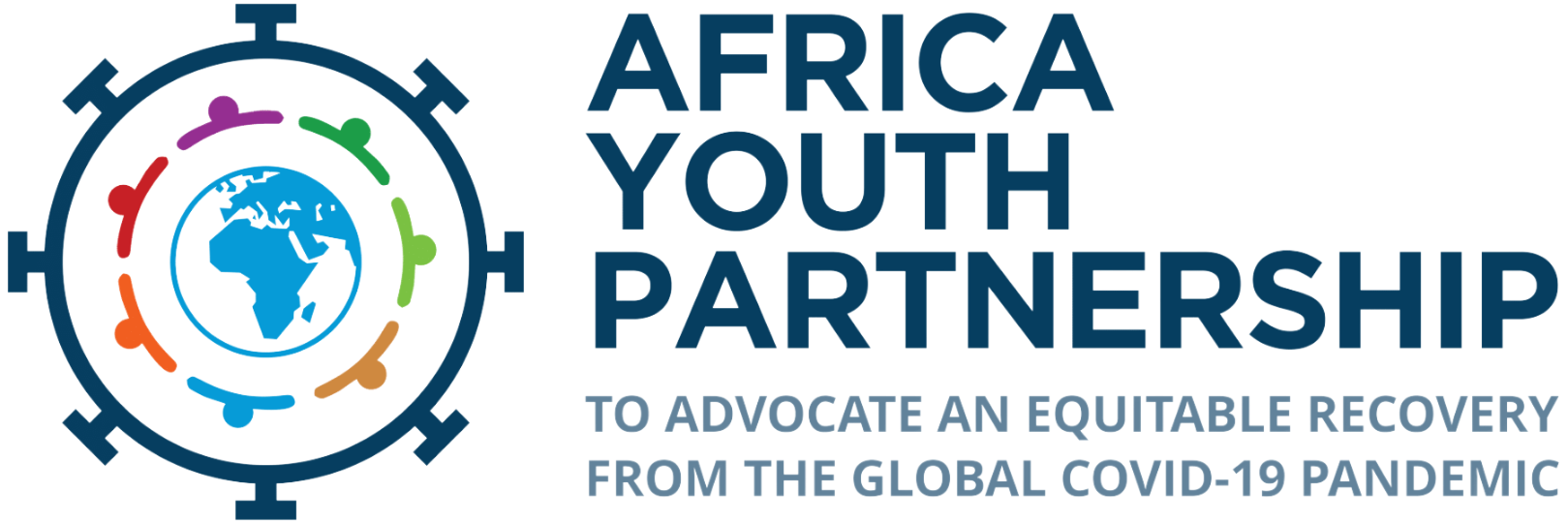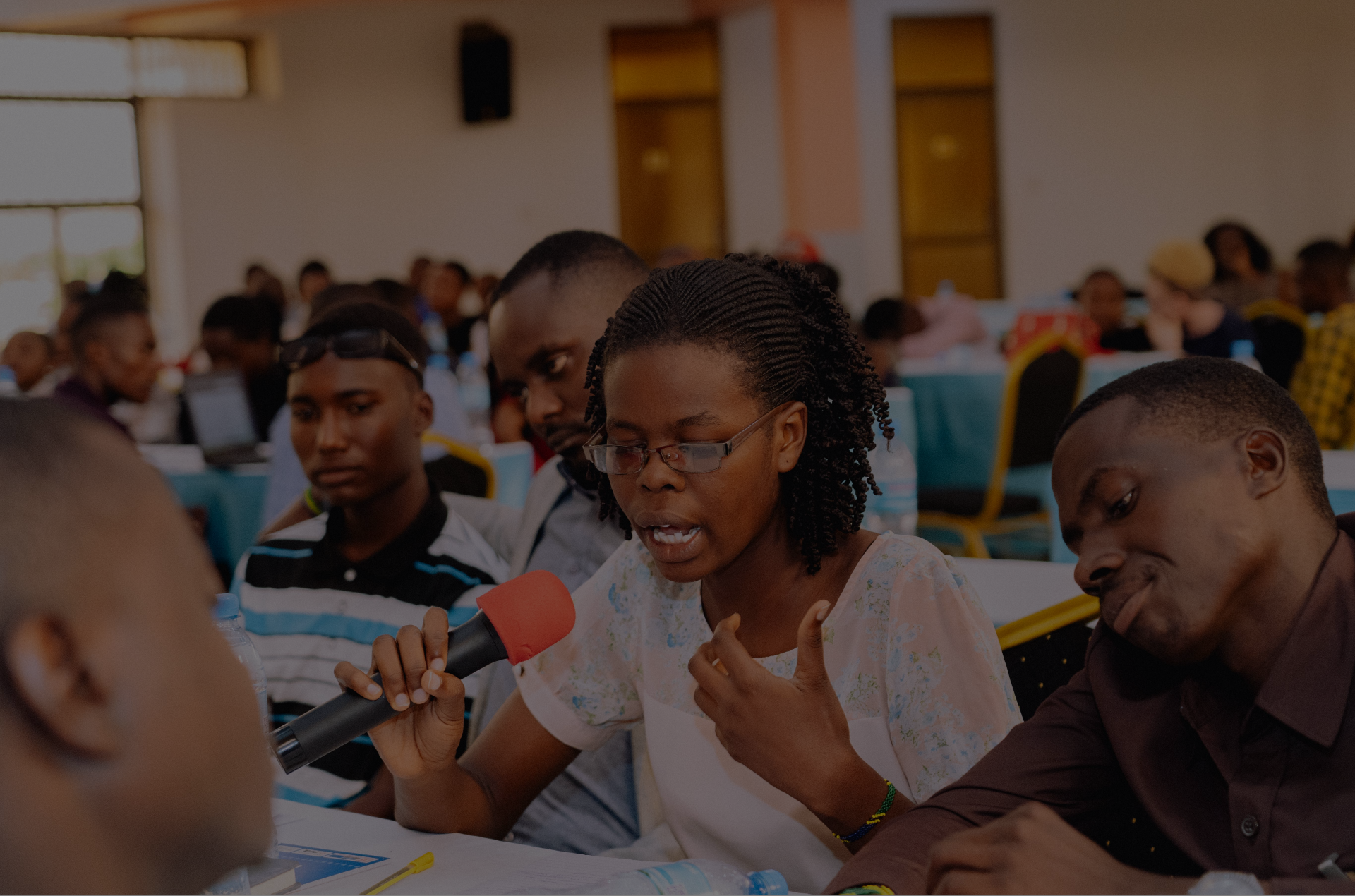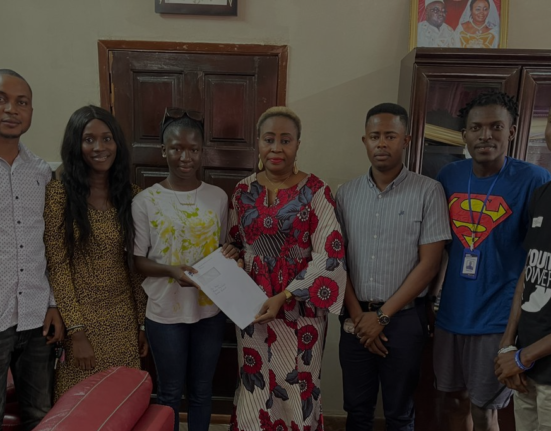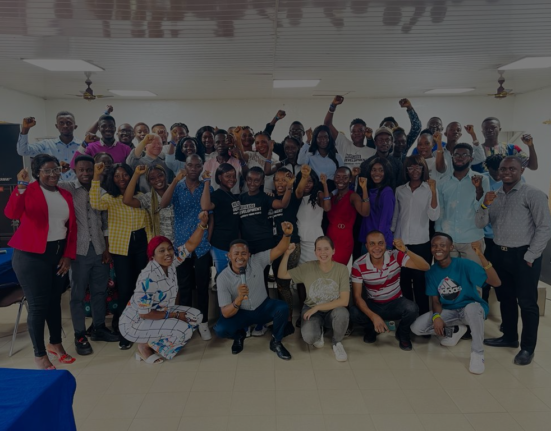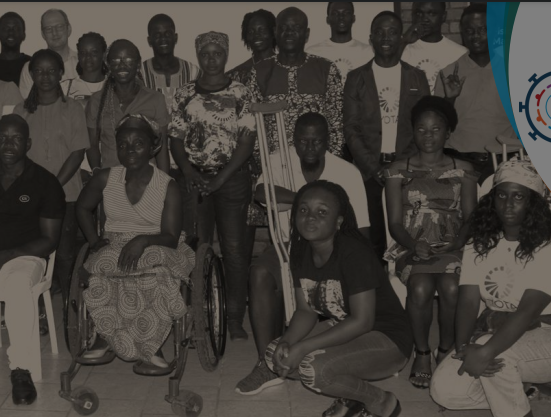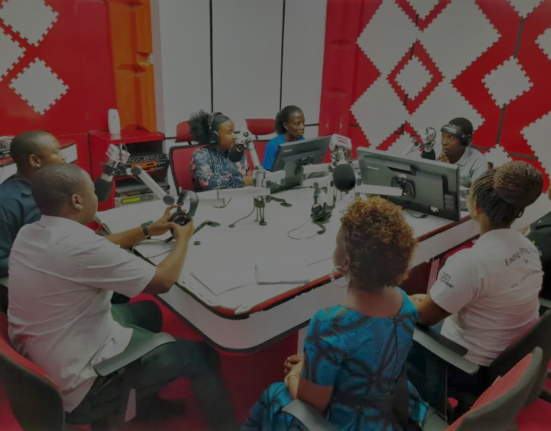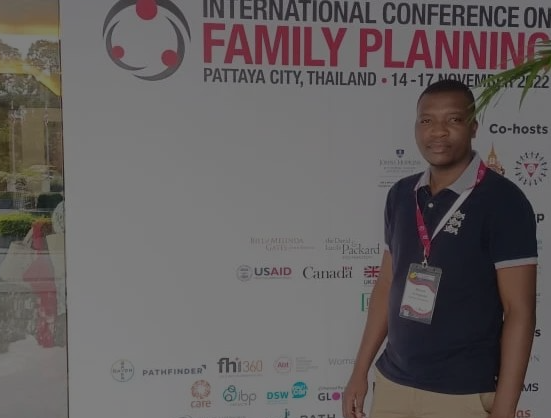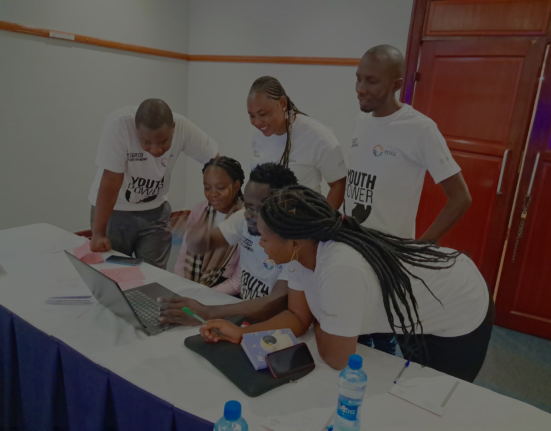African Youth Partnership Background
The COVID-19 pandemic has without a doubt exacerbated major economic and social challenges across the globe. In Africa, young people, especially vulnerable youth, have not been spared the devastating effects of the pandemic. The disruption by the COVID-19 pandemic has amplified many of the challenges already facing the continent’s youth.
Restless Development is collaborating with Youth Opportunity & Transformation in Africa (YOTA) under the Africa youth partnership to advocate for an equitable recovery from the covid-19 pandemic in Africa. The partnership believes that young people are best positioned to address matters affecting them and their communities, breaking the unequal status quo. Under this project, Young people are supported to gather data and use their drive to influence national, regional and global level change.
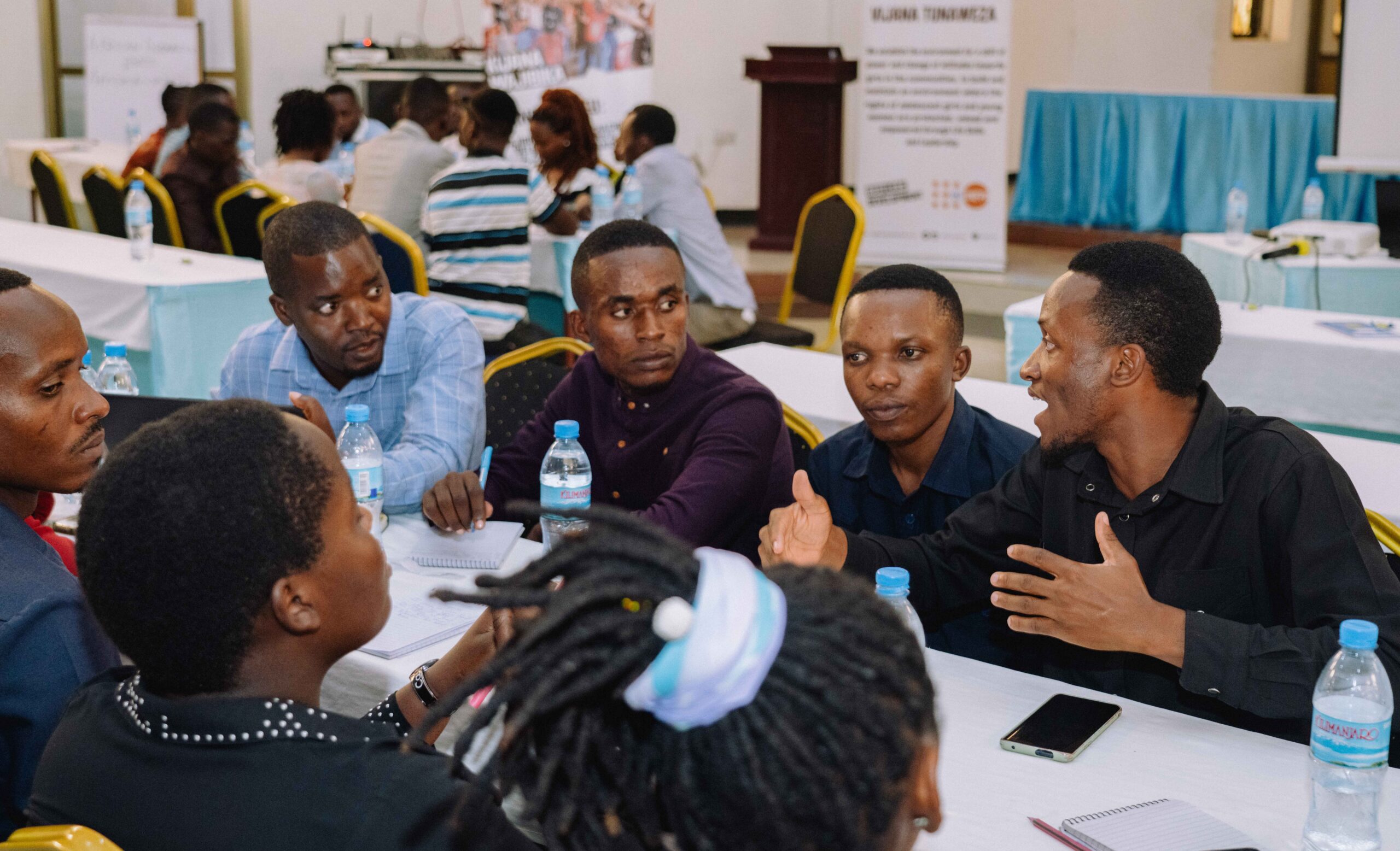
National dialogues are becoming an increasingly popular tool for national concerns and transformation. In the past several years, national dialogues have been proposed or carried out in a diverse group of communities and circumstances. In broadening the debate about a nation’s trajectory beyond the usual group of elite decision makers, national dialogues have proved to offer the potential for meaningful conversation about the underlying drivers of national issues and ways to holistically address these issues. There is no one-size-fits-all model, but it is argued that national dialogues will have a higher likelihood of success if they incorporate the following principles: inclusion, transparency and public participation, a far-reaching agenda, a credible convener, appropriate and clear rules of procedure, and an implementation plan for the agreed actions. The youth task teams in Tanzania and Uganda opted to use dialogues to discuss youth development funds (Tanzania) and education digitalization (Uganda) as these are the national agenda that need holistic approaches by allowing key stakeholders participation at the national level in addressing underlying challenges. The key roles of young people were to lead the organisation of the dialogues by identifying targeted stakeholders, inviting them to the event, leading logistics, presenting the research findings and documenting key actions from the conversations.
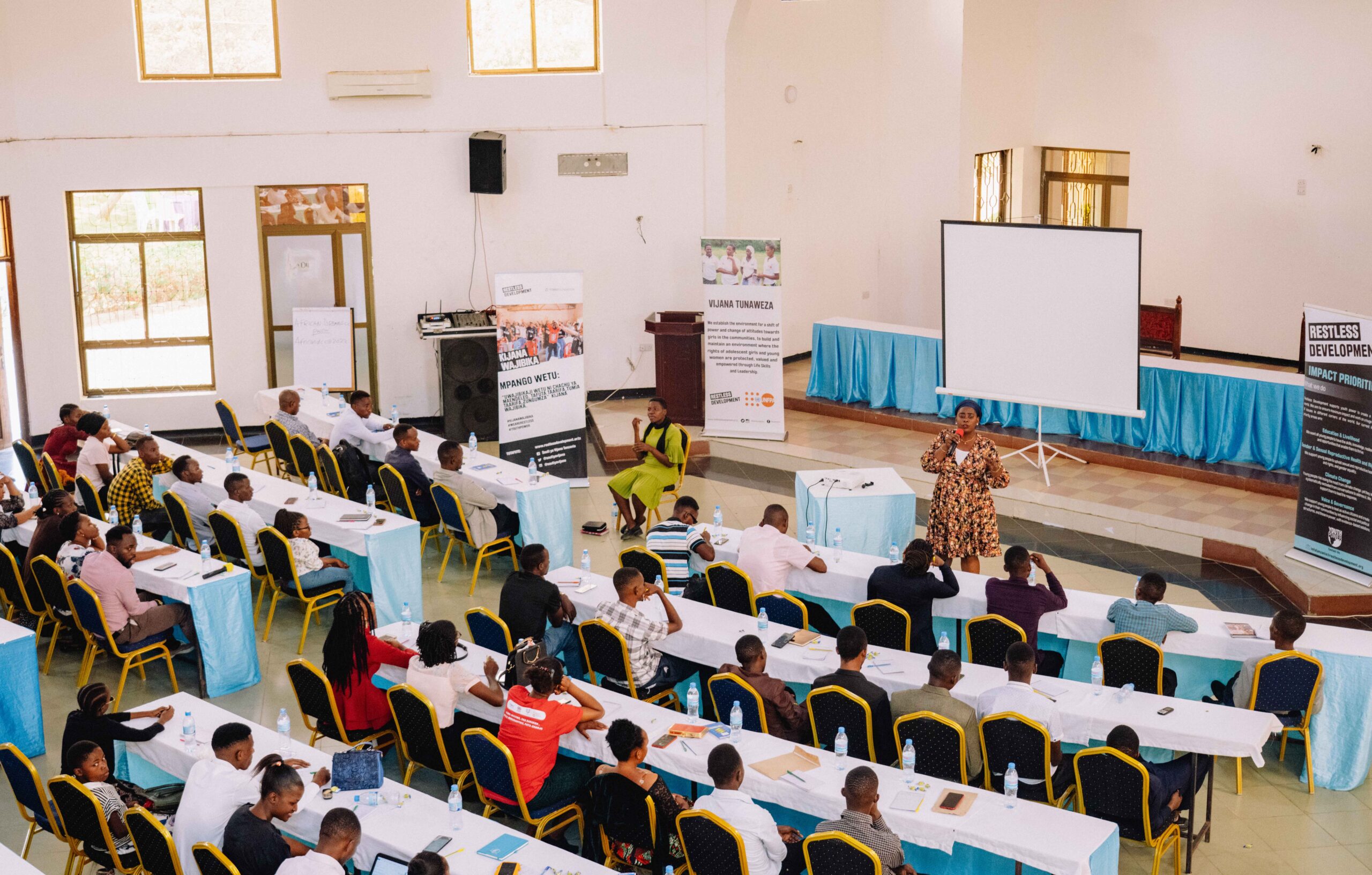
National Dialogue events
The national dialogues in project countries including Tanzania and Uganda were among key deliverables of the Africa Youth Partnership project. The dialogues were meant to create platforms for young people, civil society organisations, media houses and decision makers to discuss and co-create key issues facing youth in specific countries, use evidence to give policy recommendations thus embarrassing meaningful youth participation in the Covid19 recovery programs Africa.
CASE STUDIES
Tanzania
In 1993, the government through the parliament introduced seed money for women and youth, to uplift poor women and youth with no access to loans issued by financial institutions, due to lack of collateral. Since then, the government has been amending this seed money into Youth Development Fund. Issuance of loans to women, youths and people with disability groups aims at promoting economic growth among respective groups.
Following the onset of COVID-19 pandemic in Tanzania from 2020, the youth task team members in Tanzania noted from their research that the Youth Development Fund (YDF) under Local Government Authorities remains the crucial economic recovery and supportive program for youth, women, and people with disabilities to start, revive, rebuild, and grow their businesses/income generating activities. Despite its importance, there are weaknesses in the operational performance of this Fund which are on the policy side and on beneficiaries themselves. This is threatening the impact and sustainability of the Youth Development Fund.
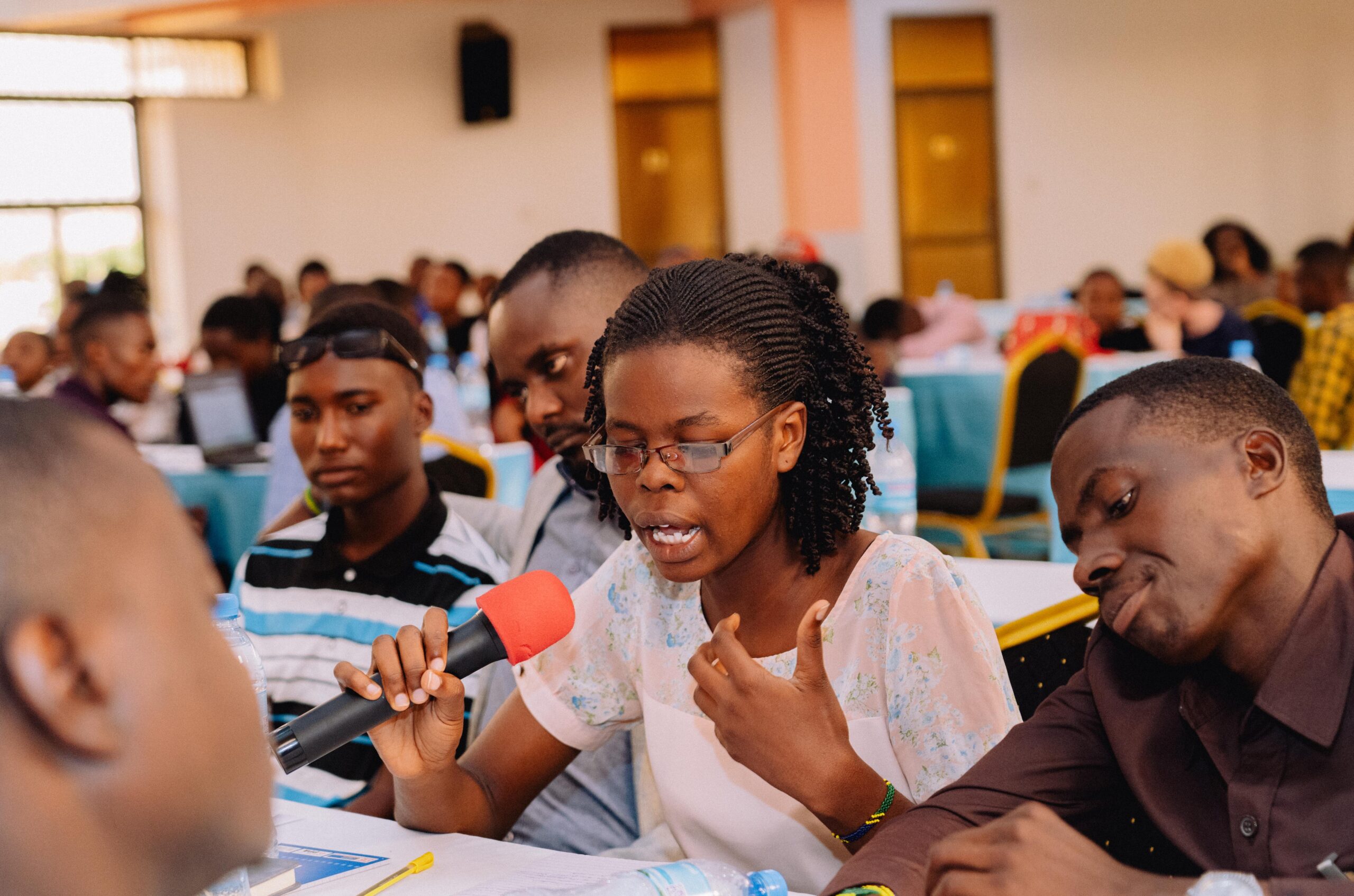
Moreover the research have shown that despite the steps being taken by the government and its authorities in Tanzania, significant gaps remain as revealed by various researches and reports from the Annual General Report every year by the Controller and Auditor General for the Local Government Authorities (LGAs) on operational performance of women, youth, and people with disabilities (PWDs) revolving fund thus, innovative and creative solutions need to be imposed to improve the management the fund so that more youth, women and PWD benefit by improving their livelihoods. Restless Development through the Youth task team members formed by youth in Tanzania organised a national dialogue event that brought together various stakeholders like youth, decision makers (members of parliament, government officials etc), media houses, development partners and civil societies to discuss innovative and creative solutions that can help our country recover from the effects of covid-19 pandemic by strengthening access and management of the youth development fund program in Tanzania.
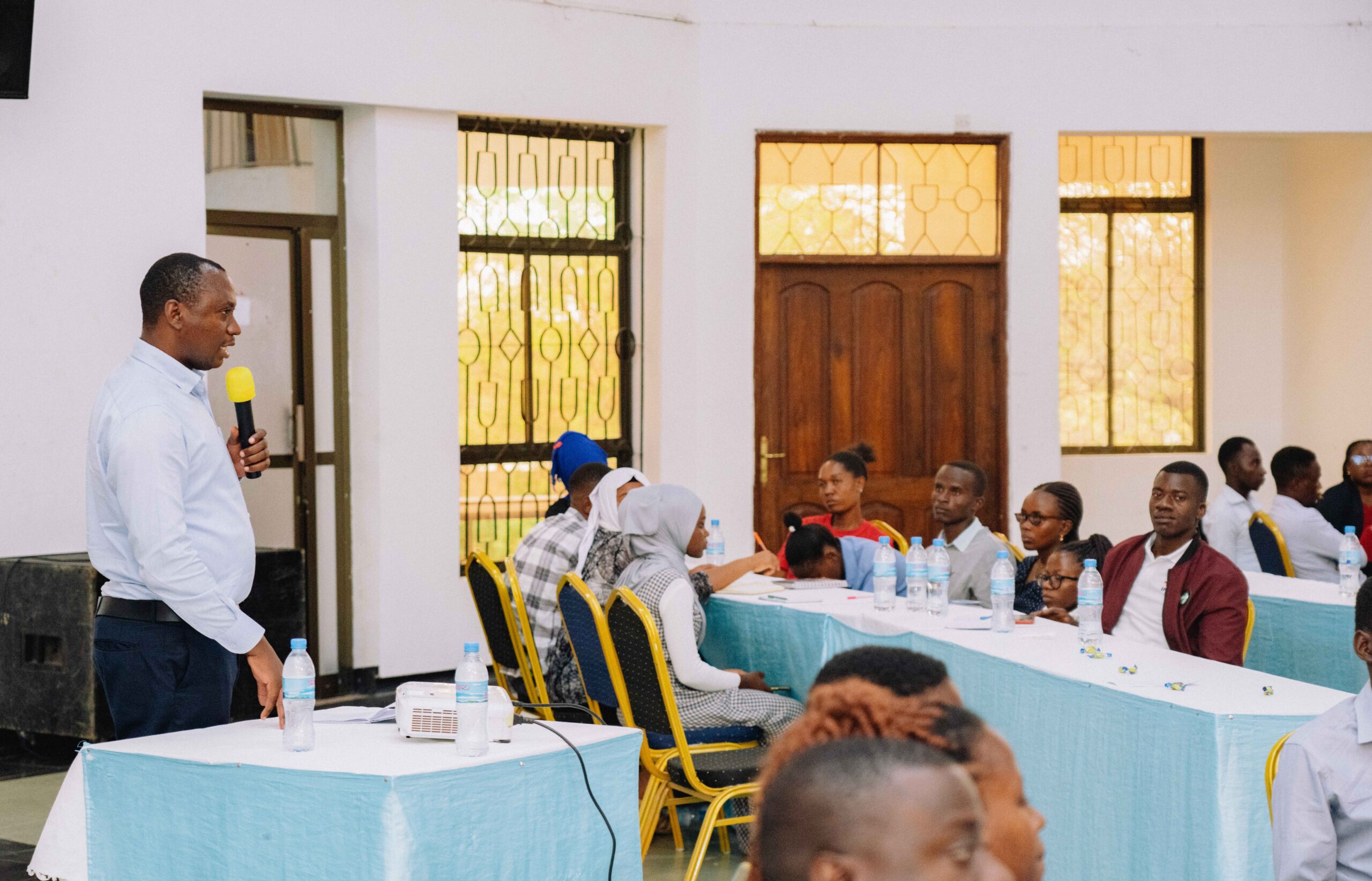
The national dialogue was organised by 5 Youth Task team members in collaboration with 23 NGOs from 16 regions of Tanzania under the leadership of Africa Youth Partnership Coordinator. The event took place on 19th December 2022 at African Dream hotel, Dodoma. The dialogue gave enough space for 101 participants (43 females, 58 males – (9 decision/policy makers from Prime Minister’s Office, President’s Office and Local government authorities from various regions in Tanzania, 67 youth representatives, 3 Media houses and 18 NGOs/CSOs from 16 regions of Tanzania mainland to discuss available economic opportunities for youth in the country, challenges and solutions for the youth development fund. The event employed approaches like questions and answers, presentations and group discussions which made it effective and productive. Generally, the event participants were well sensitised and agreed to take actions (strengthening effective management of funds, more awareness programs about the fund, entrepreneurship trainings to youth and emphasis on self determination among youth themselves) so that our country can equitably recover from the effects of Covid-19 pandemic mainly in the two sectors of economy and education in Tanzania. The detailed national dialogue event report will be written and shared to all participants to effectively implement the agreed actions/resolutions/commitments.
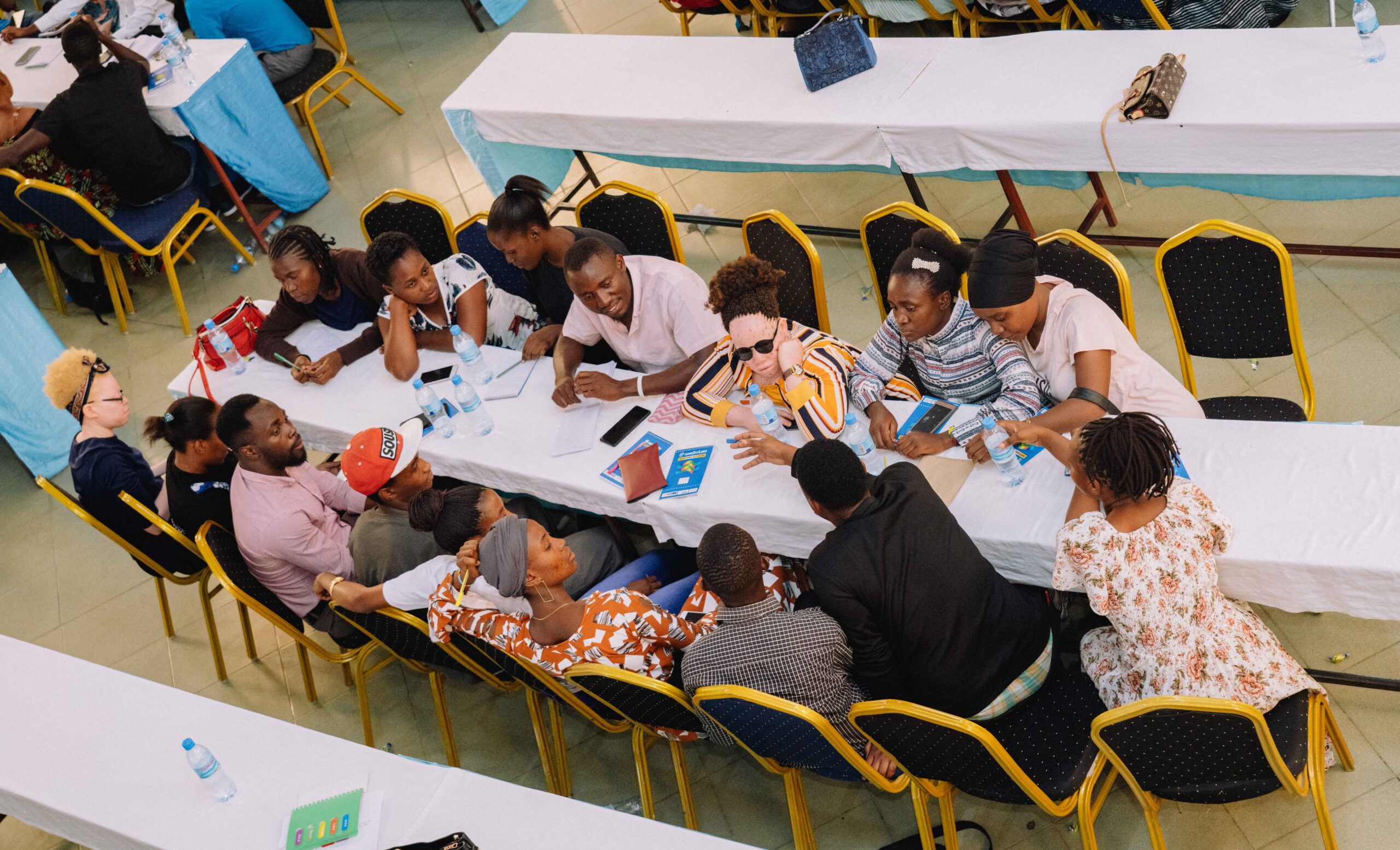
General results/achievements of the national dialogue in Tanzania;
- The contribution of the youth development fund under LGA on livelihood improvement of youth, women and PWD in Tanzania was clearly realised
- 18 Youth-led organisations and 15 young innovators got space to participate in collective reviews and evidence of the performance of national COVID-19 recovery initiatives particularly in the economic sector for youth, women and PWD in Tanzania and offered their own solutions to the duty bearers and development practitioners
- Youth voices from 96 youth have been amplified in policy review spaces thereby influencing national and regional recovery programs in favour of more equitable and inclusive recovery from the COVID-19 pandemic especially on economic recovery.
- Capacities and skills of 18 youth-led organisations and 15 young innovators to develop and implement youth-led accountability frameworks and offer solutions have improved, enabling them to better connect, collaborate and self-organise towards evidence-based advocacy for an equitable pandemic response and recovery in Tanzania
- 18 youth-led organisations involved are now integrating youth funds program awareness and linkages of youth groups to access these funds as part of the agreed actions from the national dialogues event in Tanzania. This promises the continuation of project efforts on advocacy work on equitable recovery in Tanzania and Uganda after the end of the project
- Youth Task Team members in Tanzania have been receiving invitations from youth development officers and radios in their regions to discuss youth development issues including key requirements for accessing youth development funds for youth, women and people with disability. In other words youth leadership is being realised by duty bearers and media houses in solving community challenges.
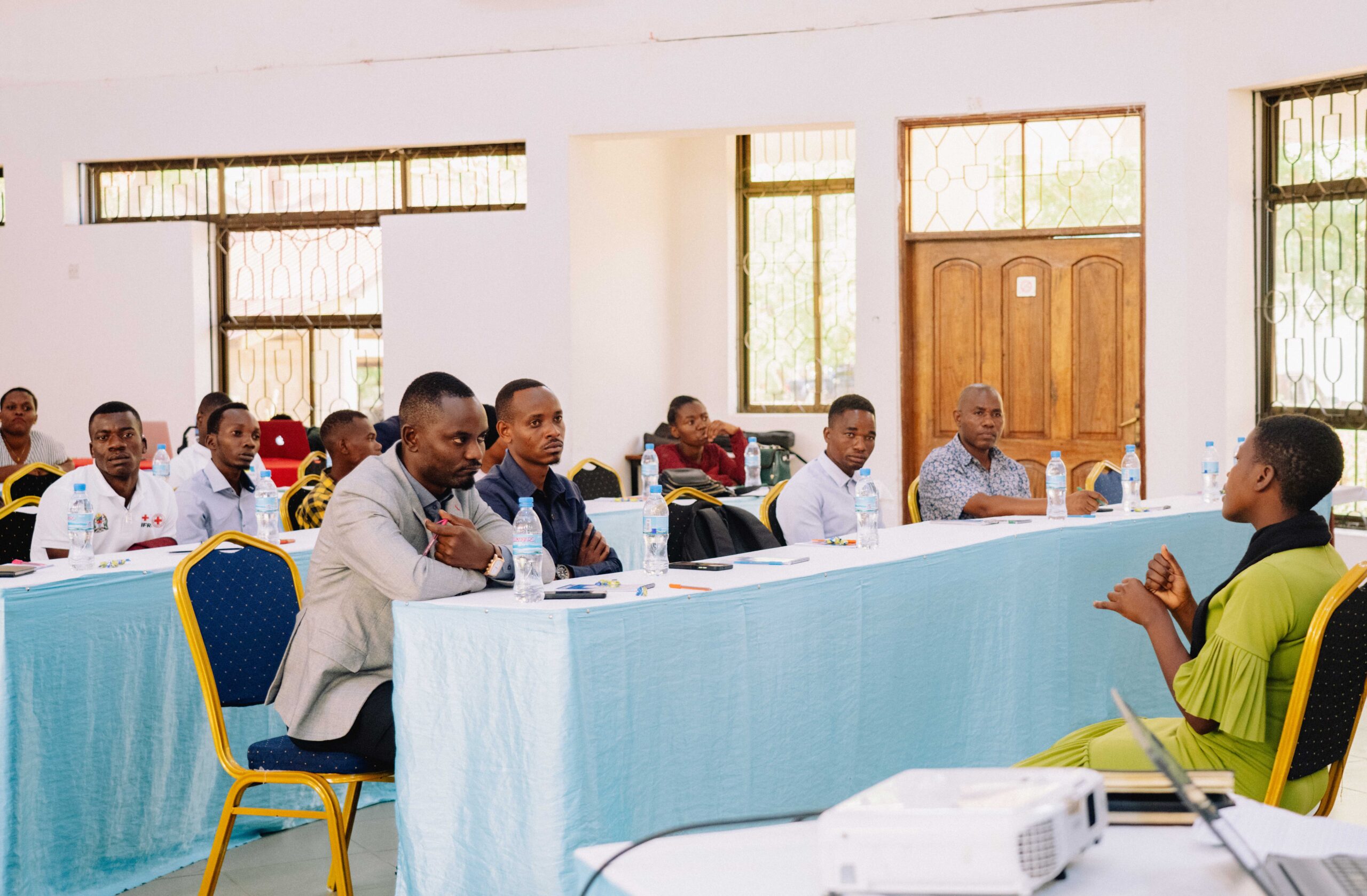
Uganda
With the outbreak of the Covid19 pandemic, governments around the world, including Uganda, put in place lockdowns and social distancing measures to stop the spread of the virus. This led to the closing of public places, all institutions of learning. Uganda in particular had the longest Covid19 lockdown for schools in the world; stretching for 2 years. Schools, consequently, turned to online teaching so that students could continue to study even at home. While all these were ongoing, most learners especially those in rural settings and slums (low income households) were unable to use these digital learning facilities due to lack of access to ICT infrastructure, tools and logistics. This digital divide widened the educational inequality gap between high income and low income households in Uganda
In Uganda, education was one of the most affected sectors by the Covid19 pandemic as over 15 million learners were left stranded home for over 2 years as schools and all other institutions of learning were closed. The Covid19 pandemic and challenges associated with it has made it increasingly important to integrate digital technologies/Information Communication Technologies (ICTs) into the education system. This is intended to impart students’ knowledge, skills, and attitudes to survive the fast-evolving digital era under the Fourth Industrial Revolution (4IR). In fact, the Ministry of Education and Sports has come up with the Digital Agenda 2021-2025 which outlives the rationale and Action Plan for integration of ICT into teaching and learning assessment to enhance overall learning outcomes. Despite all these efforts, our research has revealed that utilisation of digital technologies/ICTs in the delivery of education services is still very low in Uganda as only 30% of Ugandans can access the internet. The pandemic presented an opportunity to accelerate digitalization and create a new learning environment that is much relevant for today’s learner.
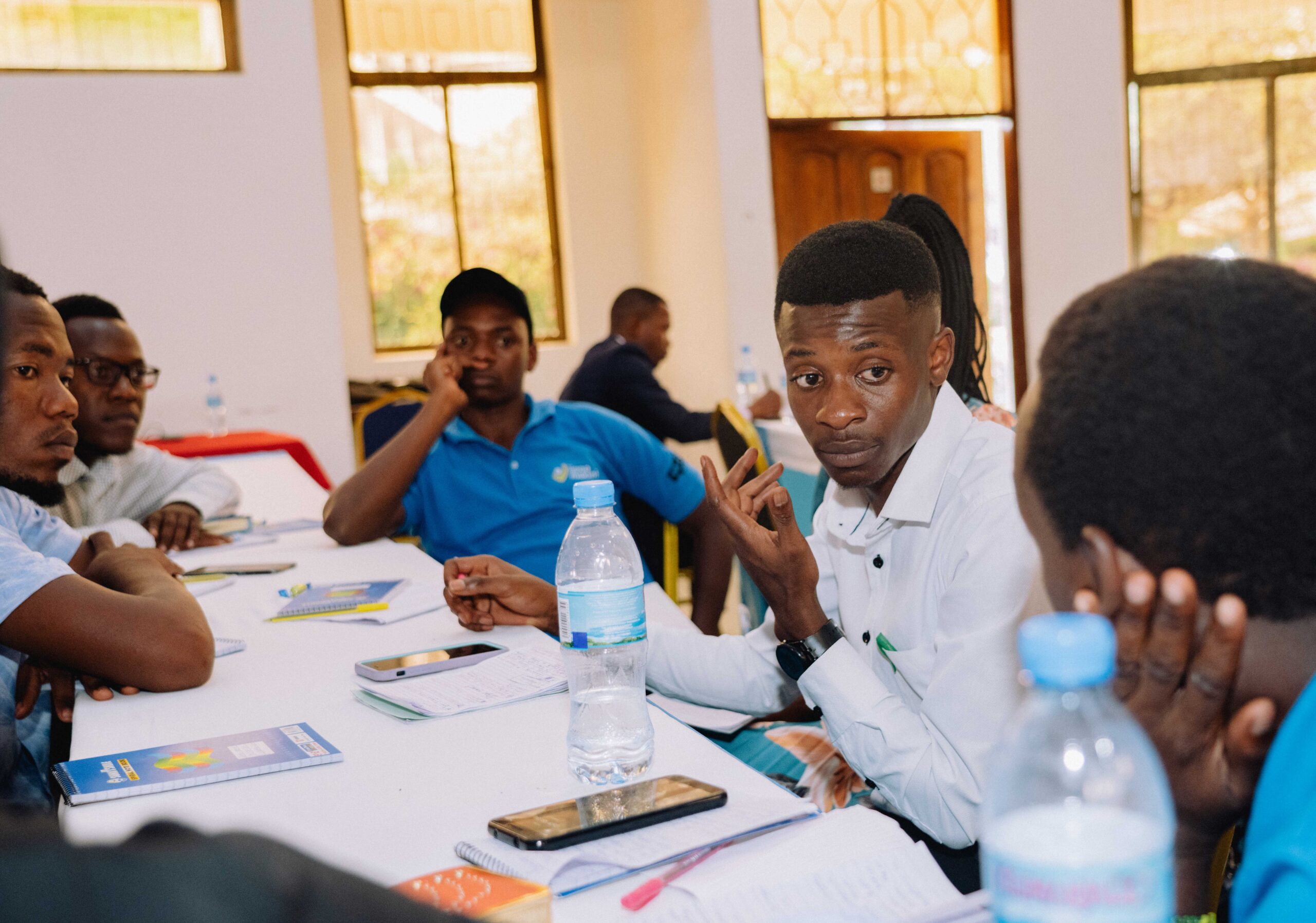
The National Dialogue was part of AYP – Uganda’s strategy to promote youth engagement through creation of spaces needed to amplify their voices to audiences of policy influence while confronting the existing barriers that compromise meaningful youth engagement in Covid19 recovery efforts. The National Dialogue was organised by the three Youth Task Team members in collaboration with national youth council in Uganda and took place on 21st December, 2022 at Makerere University, Kampala Uganda under the theme “Fostering Meaningful Youth Participation in Covid19 Recovery Processes and Socio-economic Resilience”. The dialogue was attended by 77 participants (29 females, 48 males) who were decision makers, civil society organisations representatives, members of parliament, youth, media houses and academia from the university of Makerere in Uganda
General results/achievements of the national dialogue in Uganda;
- 12 Youth-led organisations and 15 young innovators got space to participate in collective reviews and evidence of the performance of national COVID-19 recovery initiatives particularly in the education sector in Uganda and offered their own solutions to the duty bearers and development practitioners
- Youth voices from 66 youth have been amplified in policy review spaces thereby influencing national and regional recovery programs in favour of more equitable and inclusive recovery from the COVID-19 pandemic particularly on education sector
- Capacities and skills of 12 youth-led organisations and 15 young innovators to develop and implement youth-led accountability frameworks and offer solutions have improved, enabling them to better connect, collaborate and self-organise towards evidence-based advocacy for an equitable pandemic response and recovery in Uganda
- Uganda national Youth council has taken over the initiative (advocating for an equitable recovery in the education sector in Uganda and youth engagement in decision making platforms.
